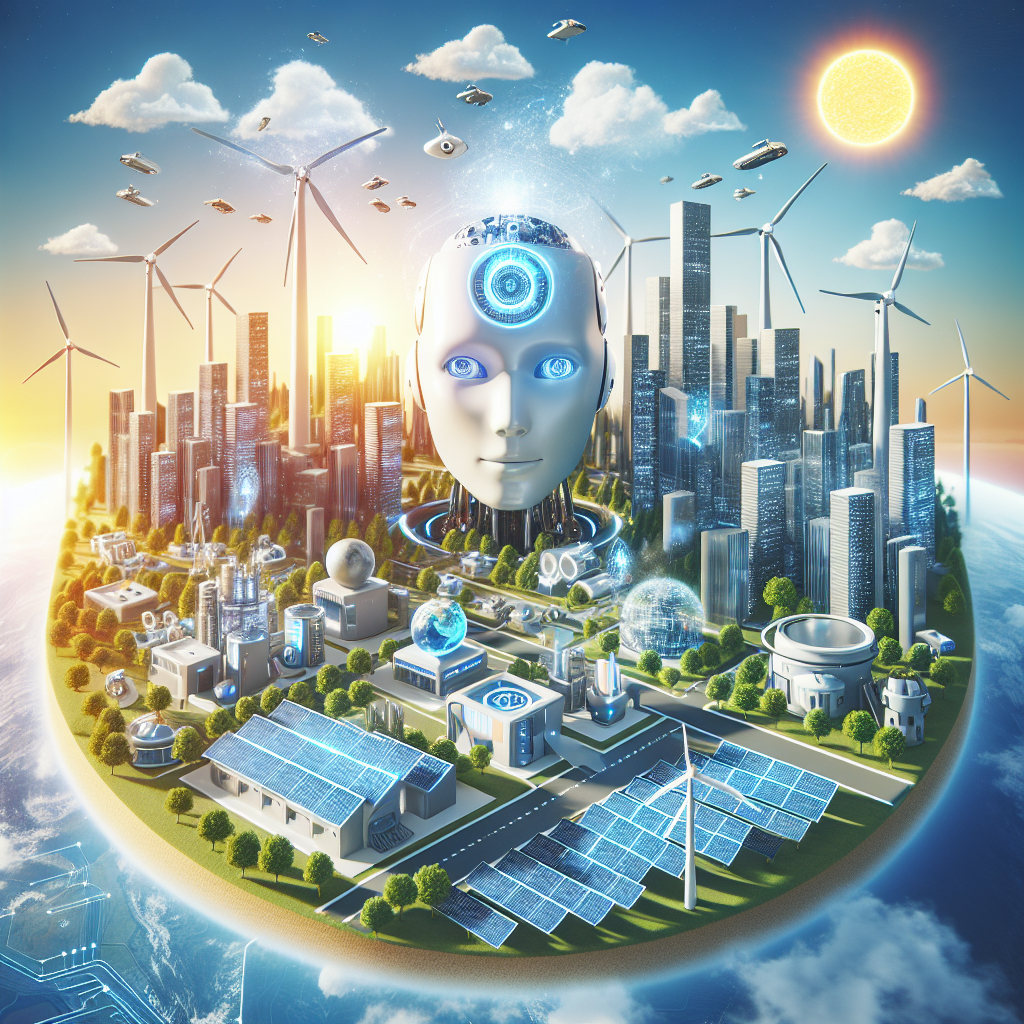The Role of AI in Accelerating the Adoption of Renewable Energy Technologies
Introduction
The adoption of renewable energy technologies is crucial in combating climate change and reducing our dependence on fossil fuels. Renewable energy sources such as solar, wind, and hydro power offer a cleaner and more sustainable alternative to traditional energy sources. However, the widespread adoption of these technologies has been hindered by a variety of challenges, including cost, efficiency, and reliability.
Artificial intelligence (AI) has emerged as a powerful tool in accelerating the adoption of renewable energy technologies. By harnessing the power of AI, researchers and engineers are able to optimize the performance of renewable energy systems, improve their efficiency, and lower their costs. In this article, we will explore the role of AI in accelerating the adoption of renewable energy technologies and the potential impact it can have on the transition to a more sustainable energy future.
Optimizing Energy Production
One of the key ways in which AI is accelerating the adoption of renewable energy technologies is by optimizing energy production. AI algorithms can analyze vast amounts of data in real-time to predict energy demand, optimize energy storage, and maximize the efficiency of renewable energy systems. For example, AI can be used to predict the output of solar panels based on weather conditions, adjust the angle of solar panels to maximize sunlight exposure, and optimize the operation of wind turbines to capture the most energy from the wind.
By optimizing energy production, AI can help renewable energy systems operate more efficiently and reliably, reducing downtime and increasing the overall output of clean energy. This not only helps to lower the cost of renewable energy but also makes it a more attractive option for consumers and businesses looking to reduce their carbon footprint.
Improving Energy Storage
Energy storage is a critical component of renewable energy systems, as it allows energy to be stored when it is abundant and then used when it is needed. AI is playing a key role in improving energy storage technologies, such as batteries and pumped hydro storage, by optimizing their performance and extending their lifespan.
AI algorithms can analyze data from energy storage systems to predict when they will be needed, optimize their charging and discharging cycles, and identify potential issues before they become major problems. This helps to improve the efficiency and reliability of energy storage systems, making them more cost-effective and sustainable in the long run.
In addition, AI can also be used to optimize the integration of energy storage systems with renewable energy sources, such as solar and wind power. By coordinating the operation of energy storage systems with renewable energy generation, AI can help to smooth out fluctuations in energy production and ensure a reliable and stable energy supply.
Lowering Costs
One of the main barriers to the adoption of renewable energy technologies has been their high upfront costs. However, AI is helping to lower the costs of renewable energy systems by optimizing their design, operation, and maintenance.
AI algorithms can analyze data from renewable energy systems to identify areas where costs can be reduced, such as optimizing the layout of solar panels or wind turbines, reducing maintenance requirements, and improving the efficiency of energy conversion. By lowering the costs of renewable energy systems, AI is making them more accessible and affordable for a wider range of consumers and businesses.
In addition, AI can also help to reduce the costs of integrating renewable energy systems into the existing energy grid. By optimizing the operation of renewable energy systems and coordinating their output with energy demand, AI can help to reduce the need for expensive upgrades to the grid infrastructure and make the transition to renewable energy more cost-effective.
FAQs
Q: How is AI being used to optimize the performance of renewable energy systems?
A: AI algorithms can analyze data from renewable energy systems to predict energy demand, optimize energy storage, and maximize the efficiency of solar panels, wind turbines, and other renewable energy technologies. By optimizing the performance of renewable energy systems, AI can help to increase their efficiency, reliability, and overall output of clean energy.
Q: How is AI improving energy storage technologies?
A: AI is helping to improve energy storage technologies, such as batteries and pumped hydro storage, by optimizing their performance and extending their lifespan. AI algorithms can analyze data from energy storage systems to predict when they will be needed, optimize their charging and discharging cycles, and identify potential issues before they become major problems. This helps to improve the efficiency and reliability of energy storage systems, making them more cost-effective and sustainable in the long run.
Q: How is AI lowering the costs of renewable energy systems?
A: AI is helping to lower the costs of renewable energy systems by optimizing their design, operation, and maintenance. AI algorithms can analyze data from renewable energy systems to identify areas where costs can be reduced, such as optimizing the layout of solar panels or wind turbines, reducing maintenance requirements, and improving the efficiency of energy conversion. By lowering the costs of renewable energy systems, AI is making them more accessible and affordable for a wider range of consumers and businesses.
Conclusion
The adoption of renewable energy technologies is essential in transitioning to a more sustainable energy future. AI is playing a crucial role in accelerating the adoption of renewable energy technologies by optimizing energy production, improving energy storage, and lowering costs. By harnessing the power of AI, researchers and engineers are able to overcome the challenges facing renewable energy systems and make them more efficient, reliable, and cost-effective.
As the world continues to grapple with the impacts of climate change, the role of AI in accelerating the adoption of renewable energy technologies will only become more important. By leveraging the power of AI, we can unlock the full potential of renewable energy sources and pave the way for a cleaner, more sustainable energy future.

